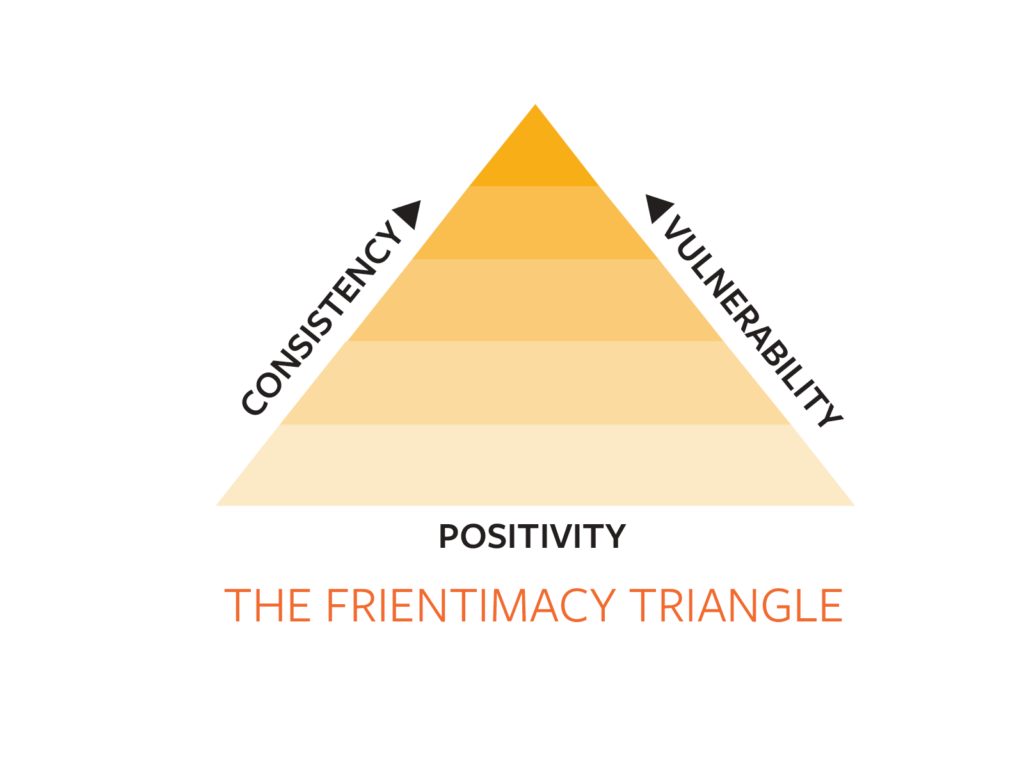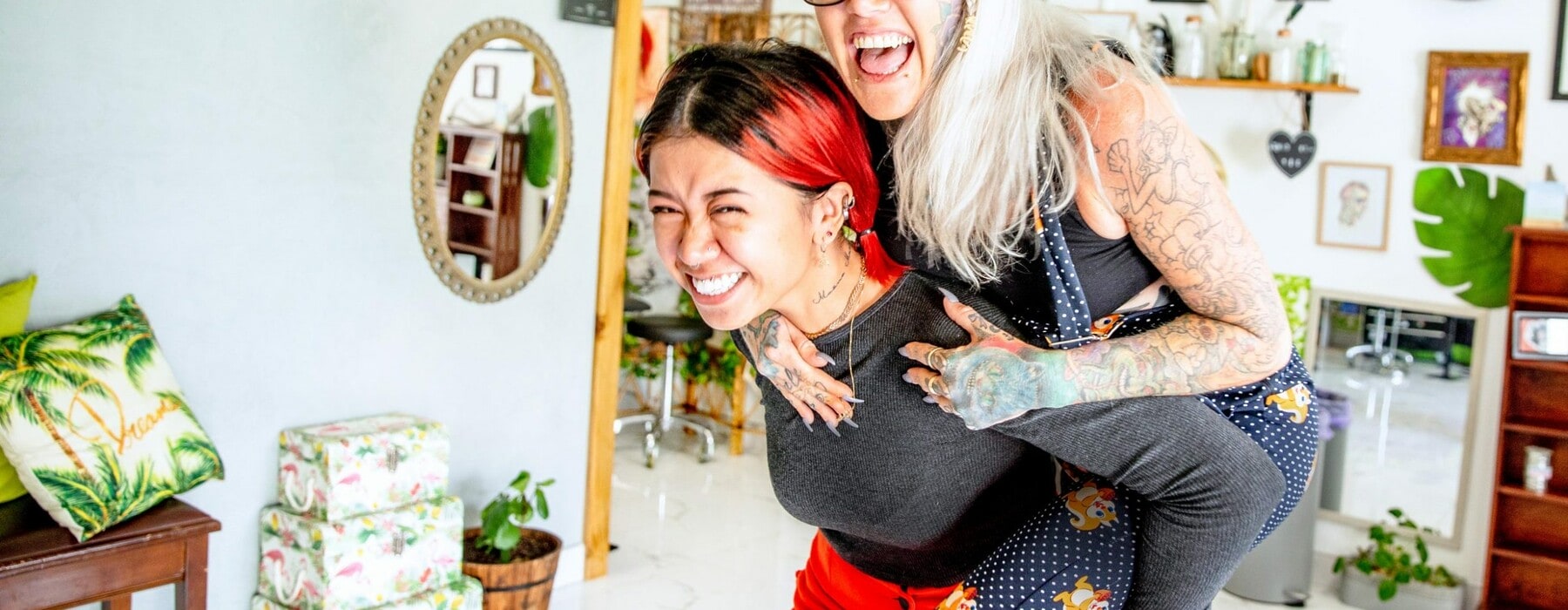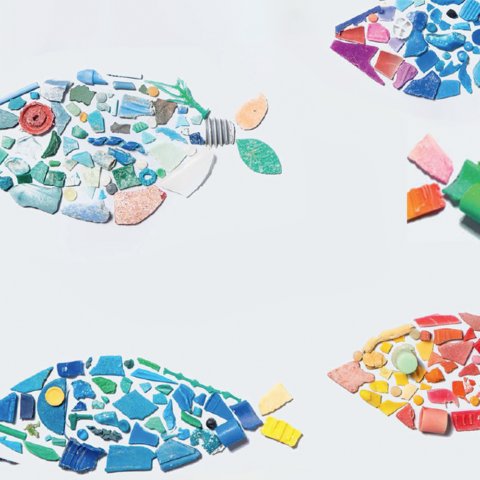Real friendships have the power to make your life better in every way. Psychologist Jacqui Maguire tells us how to build closer relationships.
Close relationships are important for our physical and mental health. It’s intimate social connection that’s critical – but I should say upfront that intimate in this context doesn’t mean romantic. It’s an indicator of a relationship’s depth, vulnerability, sense of security and openness.
Research shows that the most significant factor for longevity, mental health, disease prevention and happiness is our relationships. The Harvard Study of Adult Development has been going for eight decades, following more than 250 men since they were teenagers in 1938, and now including the children of the original participants. This study has revealed that close relationships, more than money or fame, are what keep people happy throughout their lives.
We all share a desire to be satisfied within our relationships, regardless of our age, gender or personality. Unfortunately, however, what psychologists call social loneliness is common. It doesn’t mean a life devoid of interaction, but rather a feeling of disconnection and being unseen.
How as adults, do we meet, develop and maintain intimate relationships? Or if we have people in our lives that we like, how do we strengthen existing relationships? As children and teenagers, intimate relationships are nurtured in schoolyards, clubs and neighbourhood streets. Yet as we grow, old friends often disperse because of career opportunities or the geographical pull of love. Lives become characterised by “busyness” and juggling all sorts of demands. Feelings of being overwhelmed and dead tired seem to regularly interfere with social plans. It’s no wonder that many of us are experiencing the worldwide loneliness pandemic.
Shasta Nelson is a friendship expert who coined the term “frientimacy”. Backed by scientific data, real-world research and fascinating case studies, Shasta developed a practical model to develop intimacy within friendships.

The frientimacy triangle shows that all healthy, supportive and intimate friendships have a foundation of positivity. You have interactions where you walk away feeling nourished rather than drained, and have a five to one ratio of positive to negative emotions. You look forward to spending time together.
This makes sense, as who wants to willingly invest in friendships that leave you feeling flat, or spend time together that’s riddled with complaining and whining.
Once you have established this solid foundation of positivity, the model indicates that your consistency (how frequently you interact) and vulnerability (the degree to which both individuals feel authentically seen, heard and respected) increase symbiotically. Relationships with high consistency and low vulnerability won’t ever reach “intimacy”, and spilling your heart and soul during a one-off interaction without consistent follow-up won’t either.
Look at that model while reflecting on your friendships, and ask yourself which, if any, contain positivity, consistency and vulnerability – this puts them at the top of the frientimacy triangle. I’m no stranger to this exercise, and confess it can be quite confronting.
If this exercise makes you think you would like to increase the number or make-up of intimate friendships in your life, here are some practical strategies to get you on your way:
Increasing positivity
- Try novel and new activities together.
- Be actively present in your interactions.
- Ask yourself whether you comfortably accept support. Reciprocity is critical to a positive relationship, and sometimes we are our own worst enemy by giving but not receiving.
Increasing consistency
- Prioritise people who you wish to develop frientimacy with, to avoid spreading yourself too thin.
- Diarise get-togethers.
- At the start of friendships, try not to be too selective, because you can’t predict who will become an intimate friend. Commit to consistent interactions and then reflect on whether vulnerability in the relationship is also increasing.
Increasing vulnerability
- Actively (rather than passively) communicate. When your friend raises a topic, show interest and ask them exploratory questions.
- Before an interaction, ask yourself what you would like to share with your friend. Be brave and raise it. You don’t always have to wait for others to ask you questions.
- Broaden your scope of conversation. The School of Life’s card sets offer conversation starters and there are free questions on their website (theschooloflife.com).
Above all, remember you do have the ability to influence where people sit in your “frientimacy triangle”. Sometimes we just need a reminder that friendships are like living, breathing organisms that require frequent care and attention.
Listen to Jacqui’s interview with Shasta Nelson on her Mind Brew podcast.








